Proud of "Lac Hong's children"
From the warm legend, the philosophy of life about the “Hundred Egg Sac” has spread and has a lasting vitality in the life of the nation. In the book “Hung King Legend” by researcher Nguyen Khac Xuong, there is a passage that says: “Au Co was pregnant for 3 years and 30 days. When she was about to give birth, there was a good omen on the mountain, which was the 5 colors of clouds covering, then she gave birth to a hundred egg sac, which hatched into 100 beautiful giant sons” (Excerpt: Hung King Legend, Nguyen Khac Xuong, National Culture Publishing House 2009, p. 16). That warm legend has become a symbol of the blood-related relationship of the Vietnamese people.

The image of Mother Au Co and Father Lac Long Quan - Sacred symbols for the origin of "Lac's children and Hong's grandchildren" of the Vietnamese people.
When born and growing up, every Vietnamese person is always proud of being a child of the same “womb”, a noble “Dragon and Fairy” breed. The concept of the two words “compatriots” has been deeply imprinted in the subconscious of the people, vividly expressed in real life and become a strong connection between the 54 ethnic groups in the country. Therefore, the sacred symbol of the national origin has converged in the Ancestral Land of Phu Tho , where the towering Nghia Linh mountain and the sacred Hung Temple reflect on the Da River.
Each relic on Nghia Linh mountain is a highlight of the original heritage such as Dai Mon (main gate), Ha Temple, Trung Temple, Thuong Temple, Thien Quang Pagoda, ancient well, Hung King's tomb, stone oath pillar, Gieng Temple, Mother Au Co Temple, National Ancestor Lac Long Quan Temple... This place is imbued with the sacred soul of the mountains and rivers, converging the essence of the original with many legends imbued with noble philosophies of life in the national life.

The stone oath pillar on top of Nghia Linh Mountain echoes the ancient oath.
On the top of Nghia Linh, the stone pillar of oath echoes the ancient oath of Thuc Phan An Duong Vuong, the legend of Prince Lang Lieu offering to heaven and earth, ancestors banh chung and banh day, showing the people's filial piety towards the great merit of the Hung Kings, proving the harmonious connection between heaven and earth, the connection of the community. From that noble humanistic value, the spirit of compatriots has connected into a passionate and immortal patriotism in the hearts of the Vietnamese people. Then, the philosophy of origin "Children of Lac, grandchildren of Hong" is the strength of the whole nation in the journey to reach out to the five continents and four seas, integrating with the international community.
Eternal and pervasive
Mr. Pham Ba Khiem - Chairman of the Folk Arts Association of Phu Tho province affirmed: “The value of the Hung King worship is the expression of community cohesion, the tradition of “When drinking water, remember its source” and the spirit of great national unity. The Hung King worship can be considered the red thread connecting the past with the present, a spiritual support, cultivating the will and endogenous capacity for generations of Vietnamese people”.
The event that the United Nations Educational , Scientific and Cultural Organization (UNESCO) recognized "Hung King worship in Phu Tho" and Phu Tho Xoan singing as representative intangible cultural heritage of humanity is a source of pride not only for the land of Phu Tho but also affirms the vitality, value and journey to reach the human level of the Hung King era heritage of the Vietnamese people. At the same time, on the land of Phu Tho, on the banks of the Red River, Lo River, and Da River, there are over 300 historical relics associated with the Hung King worship that are ranked as provincial and national historical and cultural relics.

Festivals in the ancestral land of Phu Tho are vivid proof of the longevity and spread of the Hung King worship belief.
From the Hung Temple on the sacred Nghia Linh peak, the Au Co Temple where the ancient Mother Hien Luong and her 49 children stopped on their journey to reclaim the earth, in the villages and communes in the localities, the temples, communal houses, shrines practicing the worship of Hung Kings, Princesses, Lac Hou, Lac Tuong, and generals of the Hung King era who had contributed to the country have been created, preserved, handed down and performed by the people on festivals and holidays of the year. Therefore, the value of the philosophy of origin and the custom of ancestor worship have been formed, preserved and spread vividly in community life. It is a sustainable source of culture and rich in noble human values, deeply imprinted in the consciousness and life of the nation.
Each village and commune where there are relics organizes the practice of worshiping the Hung Kings according to the rituals, customs and identities preserved from ancient times. Through festivals, community cohesion is clearly demonstrated. It is necessary to mention the festival of the Au Co Temple, Chu Hung Temple (Ha Hoa District), Lang Suong Temple, communal house, Dao Xa Temple (Thanh Thuy District), the Festival of King Hung teaching people to plant rice at the Dan Tich Dien relic, Minh Nong Ward (Viet Tri), the Tro Tram Festival at the Tro Temple (Tu Xa Commune), the Festival of welcoming the Lady God at the Ca Communal House (Lam Thao District), the Bach Hac Temple Festival (Viet Tri City) ... and hundreds of festivals at the relics of temples and communal houses in Phu Tho province. On the Hung Kings' death anniversary, families around Viet Tri and localities in Phu Tho province prepare trays of food to offer to the Hung Kings and their ancestors, which is one of the manifestations of the cultural beauty associated with the Hung Kings' worship of the people of the Ancestral Land.

Village residents respectfully offered the Hung Kings and ancestors gifts to show their gratitude and filial piety.
Not only in Phu Yen province and the Northern region, the Hung King worship has also developed and spread strongly to the Southern region with its unique identity, imbued with national character. These are the temples worshipping the Hung Kings built in localities such as Ho Chi Minh City, Lam Dong, Can Tho, Nghe An, Khanh Hoa, Dong Nai, Kien Giang ... Over the years, the relics and festivals in the localities are typical evidence of the everlasting vitality of the Hung King worship and the value of national intangible cultural heritages. At the same time, it is the promotion of the value of heritage in the period of integration and development.
Engrave Uncle Ho's teachings
Every time they visit Hung Temple, visitors from all over stop in front of the Ha Temple Stele House, Gieng Temple and the relief "Uncle Ho talking to officers and soldiers of the Vanguard Army Corps" to engrave Uncle Ho's teachings. During his nine visits to Phu Tho, President Ho Chi Minh visited Hung Temple twice. Each time he returned, he burned incense to commemorate and express gratitude for the merits of the Hung Kings, talked to and advised officers, soldiers and people about the care and preservation of Hung Temple relics and, more importantly, the will to protect and build the country.

Gieng Temple, where Uncle Ho sat and talked with the Vanguard Army Corps on September 19, 1954.
On September 18, 1954, President Ho Chi Minh visited a military unit stationed at Cho Hill, Kim Lang Village, Chan Mong Commune, Doan Hung District (at that time Ba Dinh Commune, Phu Ninh District). The next day, September 19, 1954, at Gieng Temple, Uncle Ho spoke to the Vanguard Army Corps before returning to take over the Capital. He advised: "The Hung Kings had the merit of building the country. You and I must work together to protect the country."

The relief "Uncle Ho talking with officers and soldiers of the Vanguard Army Corps" at the Gieng Temple intersection, where Uncle Ho's image and teachings are preserved.
The second time Uncle Ho visited Hung Temple on August 19, 1962, "He reminded the local leaders to repair and preserve the temple, preserve history; to plant trees to cover the bare hills; to build the Hung Temple historical park; to maintain the precious fruit trees of Phu Tho such as: Hong Hac Tri, jackfruit, Phu Duc pineapple..." (Excerpt: Uncle Ho with Phu Tho, Phu Tho follows Uncle Ho's words, National Political Publishing House, 2005). Uncle Ho's teachings urged and reminded every cadre, soldier and people, especially the young generation, to always remember the great merit of their ancestors, to always foster the will to unite to preserve and build a prosperous and beautiful country.
Four directions converge
Since ancient times, Phu Tho residents have passed down the song: " No matter where you go, remember the death anniversary of your ancestors on the 10th of March " to remind each other that no matter where you are, where you eat or work, in the third lunar month, you should bow your head to remember the death anniversary of your ancestors, remember your roots. Here, every Vietnamese person seems to return to the protective arms of their parents, to return to find themselves.

Hung Temple is a sacred symbol, the origin of Vietnam, every Vietnamese person, no matter where they are, always turns their eyes towards it.
The four directions converge on the Ancestral Land, each Vietnamese person can return to the origin of the country, find themselves, feel the eternal value of the nation to gain more strength in the work of building the country. Hung Temple and the Hung Kings' Commemoration Ceremony are the lasting spiritual ties connecting many generations, many regions and all people of Vietnam. Vietnamese people living and working abroad also turn to the Ancestral Land with deep respect through organizing rituals to worship the Hung Kings on holidays and the Hung Kings' Commemoration Ceremony.
In the sacred land of the ancestors, regardless of rich or poor, status or region, ethnicity, touching the footsteps, speaking about the land of origin, all people are one, united, altruistic and full of compassion so that each person always upholds the will, passionate patriotism and the aspiration to build a prosperous and happy life. Immersing in the festival space, each Vietnamese person in the village community advises each other, together making offerings to show respect and filial piety to offer to the ancestors with deep gratitude. From here, the Vietnamese people multiply the strength of community cohesion, promote the spirit of great national unity to overcome difficulties and challenges.

Returning to one's roots, lighting incense sticks, and showing gratitude to one's ancestors is a cultural beauty in the life of every Vietnamese person.
Mr. Bui Anh Minh, an overseas Vietnamese living and working in Korea, shared: "I was born and raised in the countryside of Phu Tho. Every year, on the occasion of the Hung Kings' death anniversary, I and everyone far away from home always remember the homeland as if we were remembering our roots, the warm home that sheltered us as we grew up."
It can be affirmed that Hung Temple is a sacred and eternal symbol of the origin, cultural quintessence and endogenous strength of the Vietnamese people. The worship of Hung Kings is a continuous spiritual support and a sustainable connection, creating the strength of great national unity. Every Vietnamese person always remembers the teachings of beloved Uncle Ho, always proudly looks back to the origin and is determined to build the country to be more and more rich and prosperous.
Source



![[Photo] Hanoi morning of October 1: Prolonged flooding, people wade to work](https://vphoto.vietnam.vn/thumb/1200x675/vietnam/resource/IMAGE/2025/10/1/189be28938e3493fa26b2938efa2059e)




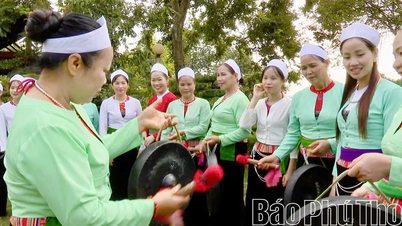

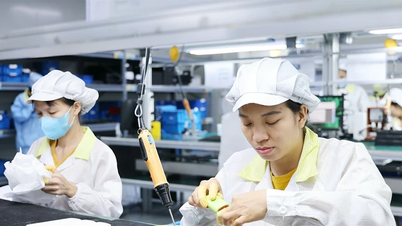
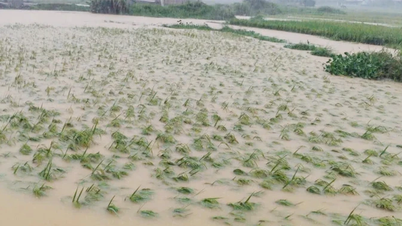
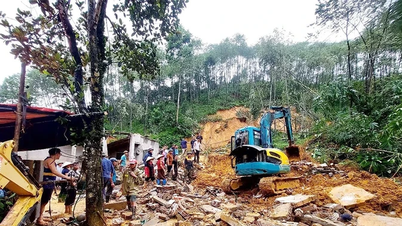
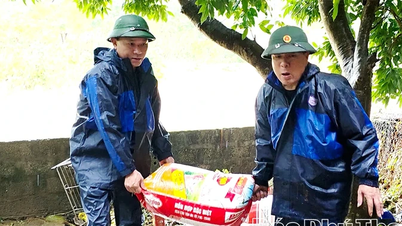

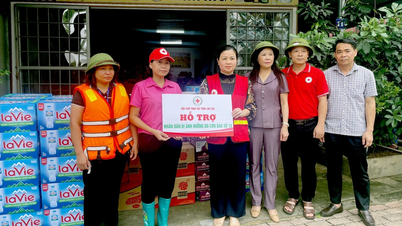

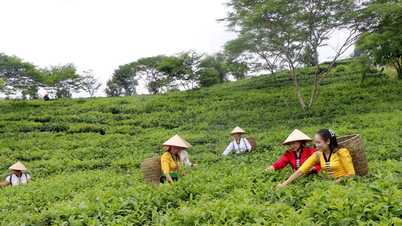
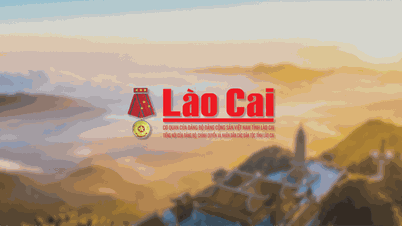
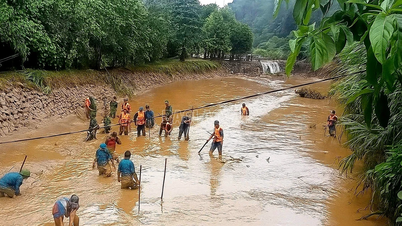
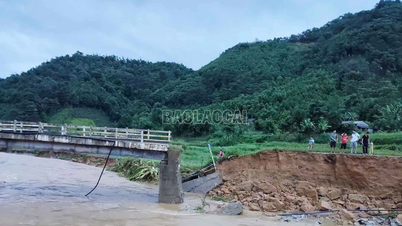
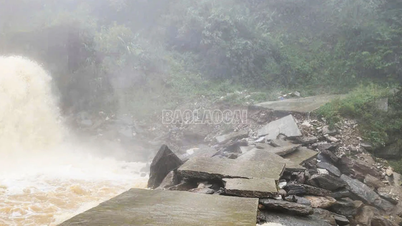




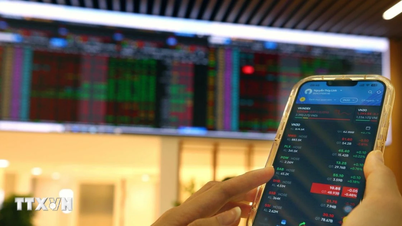
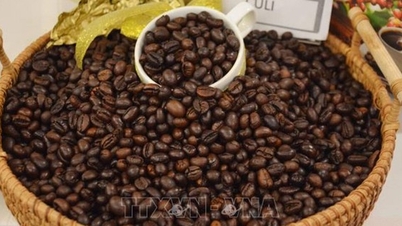
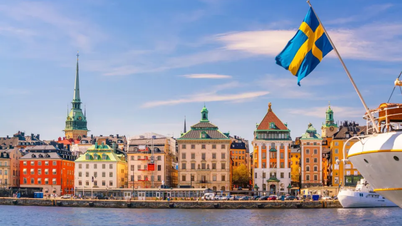
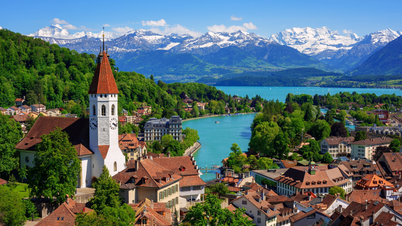

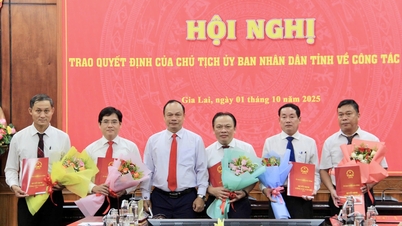
![[Photo] President Luong Cuong receives President of the Cuban National Assembly Esteban Lazo Hernandez](https://vphoto.vietnam.vn/thumb/1200x675/vietnam/resource/IMAGE/2025/9/30/4d38932911c24f6ea1936252bd5427fa)
![[Photo] Panorama of the cable-stayed bridge, the final bottleneck of the Ben Luc-Long Thanh expressway](https://vphoto.vietnam.vn/thumb/1200x675/vietnam/resource/IMAGE/2025/9/30/391fdf21025541d6b2f092e49a17243f)























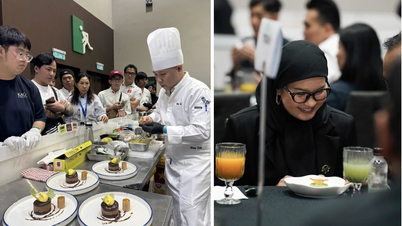

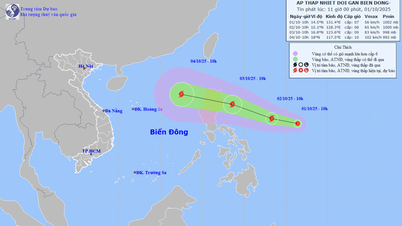
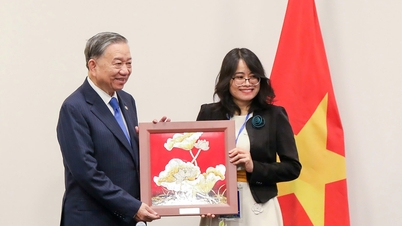

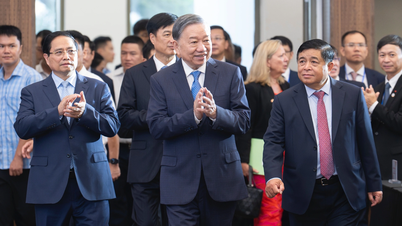
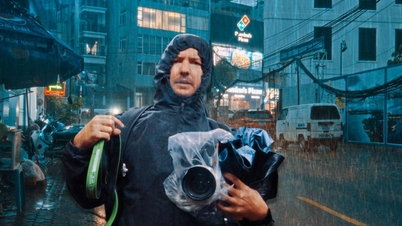



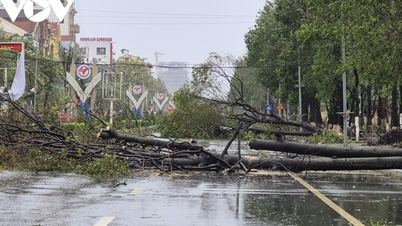
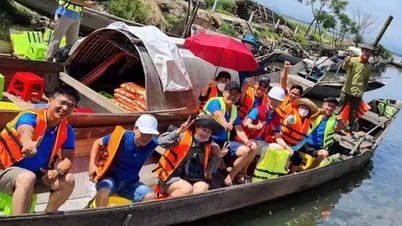
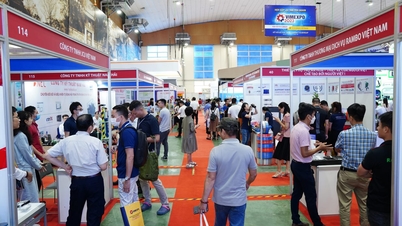

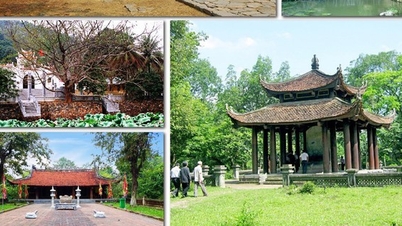
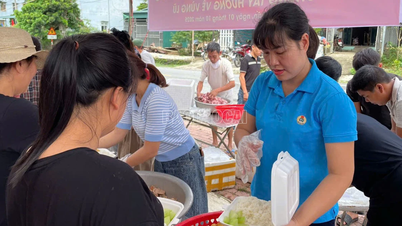
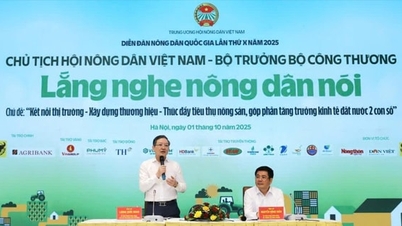

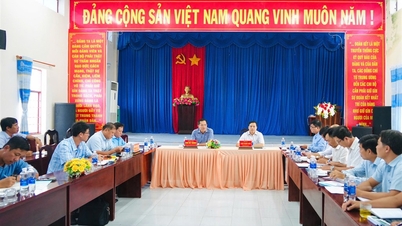


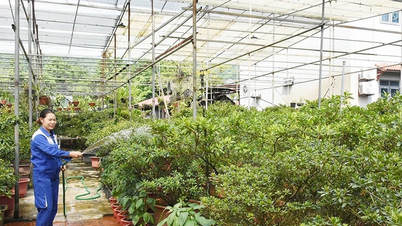
















Comment (0)